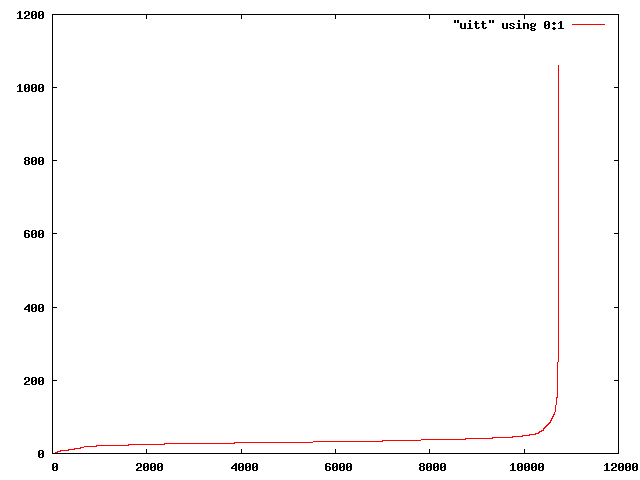Can you, dear reader, send me (or post in comments) an example of a Noetherian ring A and finite A-modules M, N such that the canonical map
RHom_A(M, A) ⊗^L_A N —–> RHom_A(M, N)
is not an isomorphism in D(A)? Much obliged.
——————————————————————————————————————-
Update Jan 27, 2013. Bhargav emailed me the following observation. Any mistakes are mine.
Lemma If A has a dualizing complex ω and the map is an isomorphism for every M, N then A has to be Gorenstein.
Proof. Denote the map above f_{M, N}. Then f_{M, N} is also an isomorphism for any M, N \in D^b_{Coh}(A) by triangles. Now choose M = N = ω. Then RHom(ω, ω) = A, so ω is invertible for the derived tensor product. This forces ω to be (locally) the shift of an invertible module by the following lemma. End.
Lemma If A is a Noetherian local ring and K is in D^b_{Coh}(A) and K ⊗^L_A M = A for some object M of D(A), then K is the shift of an invertible A-module.
Proof. Observe that K can be represented by a bounded above complex K^* of finite free A-modules all of whose differentials are zero modulo the maximal ideal m_A of A. Let k be the residue field of A. We have
k = A ⊗^L_A k = (K ⊗^L_A M) ⊗^L_A k = (K ⊗^L_A k) ⊗^L_k (M ⊗^L_A k)
The lemma is clear for D(k) as this is the category of graded k-vector spaces. We conclude that K ⊗^L_A k which is represented by K^* ⊗_A k is isomorphic to k[a] for some integer a. Thus we conclude that K^{-a} = A and K^n = 0 for other n as desired. End.
The conclusion from the comments below is that the ring of dual numbers k[\epsilon] does satisfy the property that f_{M, N} is an isomorphism for all M, N finite. [This is wrong! See update below.] This is a Gorenstein ring so there is no contradiction. On the other hand the ring R = k[x, y, w]/(x^2, y^2, xw – yw, w^2) does not satisfy the property, which now also follows from Bhargav’s observation as this ring isn’t Gorenstein (the socle has dimension 2).
——————————————————————————————————————-
Update Jan 29, 2013. Actually, Bhargav send me the following update. As usual any and all mistakes are mine.
Lemma If the map is an isomorphism for all finite M,N, then A is regular.
Proof. A is Gorenstein as before, so A has finite injective dimension. Hence, RHom(M,A) is a finite A-complex for any M. Then RHom(M,A) (x) N is bounded above (being the derived tensor product of two bounded above A-complexes). On the other hand, the right hand side is not bounded above if A is not regular. For example if A is local with residue field k, we could take M = N = k, in which case Ext^i_A(k,k) is non-zero for arbitrarily large i (as the minimal free resolution does not terminate). End.
In particular, this shows that the map is not an isomorphism for A = k[x]/(x^2), and M = N = k. This contradict the discussion above in the comments. The mistake I (and I think also Ben) made is that in computing the LHS for A = k[ε] = k[x]/(x^2), and M = N = k I took a free resolution of k over k[ε], then I took the dual of this complex and used it to compute the left hand side. But a complex of free A-modules isn’t K-flat so can’t be used to compute the derived tensor product… Argh!
Apologies for all the confusion!



